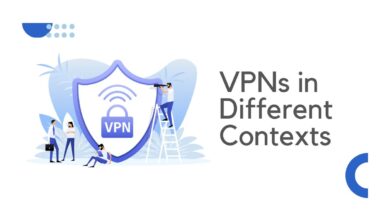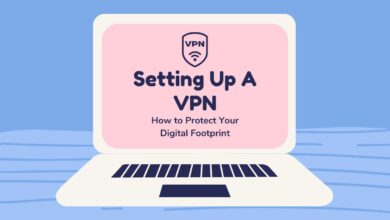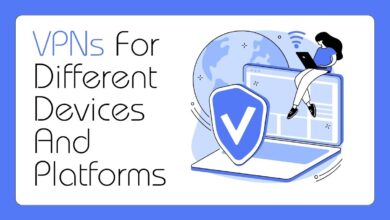VPNs And Anonymity
Key Takeaways
-
VPN usage in the United States surged by 124 percent during the two weeks between March 8 and the end of March 2020.[1]
-
VPN users are 40 percent more likely than average to access a streaming service subscription on a weekly basis.[2]
In today’s digital era, privacy and security are critical, making Virtual Private Networks (VPNs) vital tools for maintaining anonymity. VPNs enhance anonymity by encrypting connections and hiding IP addresses. The value of anonymity has been accentuated in recent years, as evidenced by VPN usage surging by 124 percent during the two weeks between March 8 and the end of March 2020 in the United States.[1] This blog delves into VPNs’ history, benefits, and additional industry insights related to VPNs and anonymity.
VPNs combat targeted ads and data tracking, ensuring online identity protection. They maintain privacy by rerouting internet traffic through remote servers. We’ll also cover proxy sites, industry trends, and VPN performance factors. Understanding the role of VPNs in anonymity is key for online privacy, whether for personal data protection or accessing restricted content
“VPN users access streaming services on a weekly basis at a rate 40% higher than the average.”
Can You Be Completely Anonymous with a VPN?
Many seek VPNs for enhanced online anonymity, questioning if total anonymity is achievable. VPNs provide encryption and hidden IP addresses for privacy. In fact, VPN users access streaming 40% more than average by evading geo-restrictions, demonstrating demand for anonymity in entertainment.[2] As services attempt to block VPNs, providers find ways around restrictions, continuing the anonymity pursuit. Let’s break that down further:
How VPNs Enhance Anonymity
VPNs play a crucial role in enhancing anonymity by adding an extra layer of security and privacy to your internet connection. When you connect to a VPN server, all your internet traffic is routed through an encrypted tunnel, making it difficult for anyone, including your Internet Service Provider (ISP), hackers, or government agencies, to monitor your online activities.
By masking your IP address with that of the VPN server, you can effectively hide your real location and identity. This makes it challenging for websites or online services to track your browsing habits or collect personal information about you.
Reputable VPN providers often have strict no-logs policies, meaning they do not keep records of users’ online activities. This further adds to the overall anonymity provided by using a VPN service.
Limitations of VPNs
While using a VPN can significantly enhance your online privacy and make it harder for others to track you, it is important to note that no technology can provide absolute anonymity. There are certain limitations that need consideration:
-
VPN Providers: While most reputable VPN providers prioritize user privacy and security, not all may adhere strictly to these principles. It is essential to choose a trustworthy and reliable VPN service that has a proven track record of protecting user data.
-
Leaks: In some cases, VPNs may suffer from IP or DNS leaks, which can expose your true IP address or other identifying information. To mitigate this risk, it is crucial to regularly test your VPN connection for leaks using online tools.
-
User Behavior: Even with a VPN, certain online activities can compromise your anonymity. Engaging in activities that involve sharing personal information or using identifiable accounts on social media platforms can undermine the effectiveness of a VPN in maintaining anonymity.
“Virtual Private Networks (VPNs) enhance online anonymity and security, yet it’s vital to recognize their boundaries.”
Limitations of VPN Anonymity
While VPNs are beneficial for privacy, it’s important to understand their limitations in providing complete online anonymity.
Internet Security and Network Connection
Virtual Private Networks (VPNs) enhance online anonymity and security, yet it’s vital to recognize their boundaries. Primarily, VPNs secure internet connections but don’t ensure absolute anonymity. They encrypt your online activities and route them through a remote server, concealing your IP address. This is particularly beneficial on public Wi-Fi or when handling sensitive data, adding a security layer.
However, VPNs aren’t all-encompassing security solutions. They can’t shield you from all cyber threats. For example, accessing malicious sites or downloading infected files while using a VPN doesn’t prevent malware risks.
Limitations in Internet Access
Relying solely on VPNs for anonymity has its drawbacks, including potential internet access issues. VPNs can circumvent geo-restrictions, but they might slow down internet speeds. The rerouting process can introduce latency, affecting browsing and loading times. Some sites and platforms block VPN IPs for security, leading to access issues or outright denial, even with a VPN.
Security Risks from Third Parties
The security of a VPN connection also depends on the trustworthiness of the VPN provider. Not all prioritize user privacy or have strong security protocols. Some free or cheap VPN services might track user data for ads or sell it, undermining the purpose of VPN anonymity.
Additionally, government agencies or powerful entities might bypass VPN encryption or pressure providers for user data. While not a common concern for most, it’s a factor to consider when assessing VPN limitations. Choosing a reputable VPN provider committed to user privacy is crucial for maximizing the benefits of VPN use.
“Relying solely on VPNs for anonymity has its drawbacks, including potential internet access issues.”
Additional Anonymity Tools
Beyond VPNs, there are other tools available to enhance online anonymity. Let’s explore these additional privacy-protecting options
Tor Network
The Tor Network is a popular tool for achieving anonymity online. It operates by routing your internet traffic through a series of volunteer-run servers, encrypting it at each step. This makes it difficult for anyone to trace your online activities back to you. By using the Tor Browser, which is specifically designed to work with the Tor Network, you can browse the web anonymously and access websites that may be blocked in your country.
Using the Tor Network provides an extra layer of privacy because it hides your IP address from websites and services you visit. It also prevents network surveillance and censorship by encrypting your data multiple times as it passes through different nodes in the network. However, it’s important to note that while Tor can provide anonymity, it may also result in slower internet speeds due to the additional routing and encryption processes.
Proxy Servers
Another tool that can enhance anonymity is a proxy server. A proxy server acts as an intermediary between your device and the internet. When you connect to a website through a proxy server, it masks your IP address and assigns a different one instead. This helps protect your identity by making it more difficult for websites or services to track your online activities.
Proxy servers are available in various forms, including web-based proxies that allow you to access blocked websites directly from your browser without any additional software installation. There are dedicated proxy servers that can be configured on specific devices or network settings.
While using proxy servers can provide some level of anonymity, it’s important to choose trusted and reputable providers to ensure secure connections and protect against potential data leaks or malicious activities.
“It is possible to access blocked websites directly from your browser with proxy servers, including web-based proxies.”
Privacy-focused Browsers
Privacy-focused browsers are designed with built-in features that prioritize user privacy and security. These browsers often include features such as ad blockers, anti-tracking tools, and enhanced encryption protocols.
One example of a privacy-focused browser is Brave Browser. Brave blocks unwanted ads and trackers by default, providing a more private browsing experience. It also allows users to enable additional privacy features, such as HTTPS Everywhere, which ensures that connections to websites are encrypted whenever possible.
Another popular option is Mozilla Firefox. Firefox offers enhanced privacy settings and the ability to customize your browsing experience with various privacy-focused extensions.
Privacy-focused browsers can help protect your anonymity by preventing websites from tracking your online activities and collecting personal information. However, it’s important to remember that while these browsers can enhance privacy, they may not provide complete anonymity on their own.
FAQs
1. Can a VPN make you completely anonymous online?
No, a VPN cannot make you completely anonymous online. While it can hide your IP address and encrypt your internet traffic, other identifying information such as your browsing history or online activities may still be visible to third parties.
2. What are the limitations of VPN anonymity?
VPN anonymity has its limitations. Although it can mask your IP address and protect your data, it does not guarantee absolute anonymity. Factors like the VPN provider’s logging policy, potential leaks, and the possibility of correlation attacks can compromise your anonymity.
3. Are there additional tools that enhance anonymity alongside a VPN?
Yes, there are additional tools that can enhance anonymity alongside a VPN. These include Tor (The Onion Router), which provides layered encryption for enhanced privacy, secure browsers like Brave or Firefox Focus, and privacy-focused search engines such as DuckDuckGo.
Conclusion
VPNs offer significant anonymity but have limitations. They hide IP addresses and encrypt traffic but don’t ensure complete privacy. Issues like logging policies and government surveillance affect their effectiveness.
For better anonymity, combine VPNs with tools like Tor or encrypted apps. These enhance protection for your data. Stay informed about your digital privacy tools. Understanding VPNs’ limits and using additional methods helps maintain your online privacy in the digital age.
Learn more about VPN services and mobile phones from our blogs at Security Forward.





